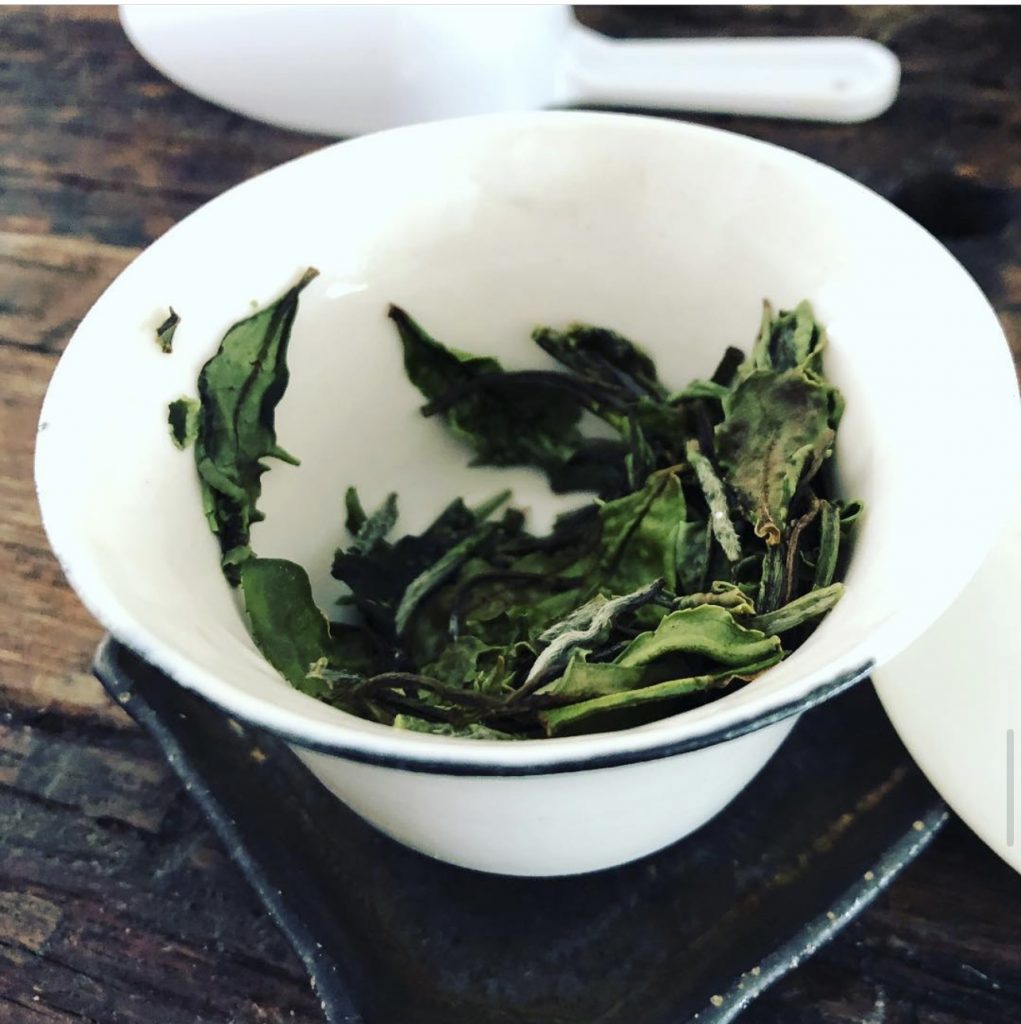Drinking green tea has become a popular trend in recent years due to its numerous health benefits. However, many people are still unsure about whether it is safe to drink green tea on an empty stomach or not. Some people believe that drinking green tea on an empty stomach can cause digestive issues, while others believe that it can enhance digestion and provide other health benefits.
Green tea is a type of tea that is made from the leaves of the Camellia sinensis plant. It’s rich in antioxidants and other beneficial compounds that can help improve overall health. Green tea has been shown to have anti-inflammatory, antimicrobial, and anticancer properties. It’s also known to help boost metabolism, improve brain function, and reduce the risk of heart disease.
Quick Navigation
Benefits of Drinking Green Tea on an Empty Stomach
Drinking green tea on an empty stomach can provide numerous health benefits. It can help improve digestion, boost metabolism, and increase energy levels. Green tea contains caffeine, which can help stimulate the production of stomach acid and improve digestion. It also contains catechins, which are antioxidants that can help protect the body against cell damage and reduce the risk of chronic diseases.
Key Takeaways
- Drinking green tea on an empty stomach can provide numerous health benefits, including improved digestion, increased energy levels, and reduced risk of chronic diseases.
- Green tea contains caffeine and catechins, which can help stimulate the production of stomach acid and protect the body against cell damage.
- While drinking green tea on an empty stomach may be beneficial for some people, it’s important to be aware of potential risks and side effects, and to consume it in moderation.

Understanding Green Tea
Green tea is a popular beverage made from the leaves of the Camellia sinensis plant. It has been consumed for centuries in Asia and is now enjoyed all over the world. Green tea is often praised for its numerous health benefits, including aiding in weight loss, reducing the risk of chronic diseases, and improving brain function.
Nutritional Profile
Green tea is a low-calorie beverage that contains several essential nutrients. According to The Health Site, a cup of green tea (240 ml) contains:
- Calories: 2
- Protein: 0.1 grams
- Fat: 0 grams
- Carbohydrates: 0.5 grams
- Fiber: 0 grams
Green tea also contains small amounts of minerals such as calcium, magnesium, and potassium.
Active Compounds
Green tea contains several active compounds that are responsible for its health benefits. The most important of these are polyphenols, which are powerful antioxidants that protect the body from damage caused by free radicals. One of the most abundant polyphenols in green tea is epigallocatechin gallate (EGCG), which has been shown to have anti-cancer properties.
Green tea also contains caffeine, which is a stimulant that can improve brain function and increase alertness. However, green tea contains less caffeine than coffee, so it is less likely to cause jitters or insomnia.
In addition to polyphenols and caffeine, green tea also contains theanine, an amino acid that has a calming effect on the body. Theanine can help reduce stress and anxiety and improve mood.
Overall, green tea is a nutritious beverage that contains several active compounds that provide numerous health benefits. In the following sections, we will explore whether it is OK to drink green tea on an empty stomach.
Benefits of Drinking Green Tea on an Empty Stomach
If you’re wondering whether it’s okay to drink green tea on an empty stomach, the answer is yes (with some considerations). Drinking green tea on an empty stomach can have several benefits, including metabolic advantages and enhanced absorption of catechins.
Metabolic Advantages
Drinking green tea on an empty stomach can help boost your metabolism. Green tea contains catechins, which are natural antioxidants that have been shown to increase energy expenditure and fat oxidation. According to a study published in the American Journal of Clinical Nutrition, green tea can increase metabolic rate by 4% over a 24-hour period. This means that drinking green tea on an empty stomach may help you burn more calories throughout the day.
Enhanced Absorption of Catechins
Drinking green tea on an empty stomach can also enhance the absorption of catechins. Catechins are the main active compounds in green tea that provide its health benefits. However, catechins are also known to bind with other compounds in food, which can reduce their absorption in the body. When you drink green tea on an empty stomach, there are fewer compounds in your digestive system that can interfere with the absorption of catechins. This means that more catechins can be absorbed into your bloodstream, which can help maximize their health benefits.
Overall, drinking green tea on an empty stomach can provide several health benefits, including metabolic advantages and enhanced absorption of catechins. So go ahead and enjoy a cup of green tea in the morning before breakfast to start your day off on a healthy note.
Potential Risks and Side Effects
Gastric Discomfort
Drinking green tea on an empty stomach may cause gastric discomfort in some people. The tannins present in green tea can increase the amount of acid in your stomach, which may lead to digestive issues such as constipation, acid reflux, and nausea. To avoid these side effects, it is recommended to drink green tea with food or after a meal.
Effects on Iron Absorption
Green tea contains catechins, which are antioxidants that can bind to iron and inhibit its absorption. If you have iron-deficiency anemia or are at risk of developing it, it is best to avoid drinking green tea on an empty stomach or with meals that are high in iron. To increase iron absorption, it’s recommended to drink green tea separately from meals or with meals that are low in iron.
It’s important to note that these potential risks and side effects are not experienced by everyone and may vary from person to person. If you experience any discomfort or adverse effects after drinking green tea, it’s recommended to consult with your healthcare provider.
Optimal Consumption Practices
Timing and Frequency
When it comes to drinking green tea, timing and frequency are important factors to consider. Drinking green tea on an empty stomach may cause stomach upset, especially if you’re sensitive to caffeine. Therefore, it is recommended to drink green tea after a meal or at least 30 minutes before a meal. This will help to avoid any potential stomach discomfort.
In terms of frequency, it is generally safe to drink green tea daily. However, it is important to keep in mind that green tea contains caffeine. Consuming too much caffeine can lead to negative side effects such as jitteriness, insomnia, and increased heart rate. Therefore, it is recommended to limit your daily intake to no more than 3-4 cups per day.
Recommended Quantities
The recommended amount of green tea to consume varies depending on the individual and their health goals. For general health benefits, it is recommended to consume 2-3 cups of green tea per day. However, if you’re looking to maximize the health benefits of green tea, you may want to consider consuming up to 5 cups per day.
It’s important to note that green tea contains antioxidants and other beneficial compounds that can provide health benefits. However, it’s also important to maintain a balanced and varied diet that includes a variety of fruits, vegetables, whole grains, and lean proteins. Drinking green tea alone is not a substitute for a healthy diet and lifestyle.
In summary, drinking green tea on an empty stomach may cause stomach upset, so it’s recommended to drink it after a meal or at least 30 minutes before a meal. It’s generally safe to drink green tea daily, but it is important to limit your intake to no more than 3-4 cups per day to avoid negative side effects. The recommended amount of green tea to consume varies depending on the individual and their health goals, but 2-3 cups per day is a good starting point for general health benefits.
Alternatives to Drinking Green Tea on an Empty Stomach
If you’re looking for alternatives to drinking green tea on an empty stomach, there are several options available to you. Here are a few alternatives that you can try:
With Meals
One way to avoid the potential side effects of drinking green tea on an empty stomach is to consume it with meals. This can help to reduce the risk of stomach upset and other digestive issues. You can also try adding a splash of milk or a bit of honey to your green tea to make it more palatable and easier on your stomach.
Herbal Infusions
Another option is to try herbal infusions. Herbal infusions are made by steeping herbs in hot water, just like tea. There are many different types of herbs that you can use to make herbal infusions, each with their own unique health benefits. Some popular options include:
- Chamomile: Chamomile is a calming herb that can help to reduce stress and anxiety. It is also thought to have anti-inflammatory properties.
- Peppermint: Peppermint is a refreshing herb that can help to soothe an upset stomach. It is also thought to have antimicrobial properties.
- Ginger: Ginger is a warming herb that can help to ease nausea and digestive issues. It is also thought to have anti-inflammatory properties.
- Lemon balm: Lemon balm is a calming herb that can help to reduce stress and anxiety. It is also thought to have antiviral properties.
Overall, there are many alternatives to drinking green tea on an empty stomach that you can try. Whether you choose to consume your tea with meals or try herbal infusions, there are many options available to help you reap the health benefits of tea without the potential side effects.
Frequently Asked Questions
What are the benefits of drinking green tea on an empty stomach?
Green tea is an excellent source of antioxidants and nutrients that can help improve overall health. Drinking green tea on an empty stomach can help boost metabolism, improve digestion, and increase energy levels. It is also known to reduce the risk of heart disease, diabetes, and other chronic illnesses.
Can green tea consumption on an empty stomach aid in weight loss?
Yes, drinking green tea on an empty stomach can aid in weight loss. Green tea contains caffeine and catechins, which help increase metabolism and burn fat. It also helps suppress appetite, which can lead to reduced calorie intake and weight loss.
What is the best time to drink green tea for achieving a flat tummy?
There is no specific time to drink green tea for achieving a flat tummy. However, drinking green tea before meals can help suppress appetite and reduce calorie intake. It is also recommended to drink green tea in the morning to boost metabolism and increase energy levels.
Are there any potential side effects associated with consuming green tea without eating first?
Drinking green tea on an empty stomach can cause stomach upset, nausea, and vomiting in some people. This is due to the high levels of tannins in green tea, which can increase stomach acids. It is recommended to consume green tea after a meal or with a light snack to avoid these side effects.
How long should one wait after a meal before drinking green tea?
It is recommended to wait at least 30 minutes after a meal before drinking green tea. This allows for proper digestion and absorption of nutrients from the meal. Drinking green tea immediately after a meal can interfere with the absorption of iron and other minerals from the food.
Does the time of day affect the benefits of green tea, such as morning versus night?
The time of day does not affect the benefits of green tea. However, drinking green tea at night may interfere with sleep due to its caffeine content. It is recommended to drink green tea in the morning or early afternoon to avoid any sleep disturbances.

Scott is the founder of TeaMinded. He enjoys tasting and discovering teas from across the globe, with green teas and ceremonial matcha from Japan being among his favorites. He’s grateful to be immersed in the tea community, always learning and sharing along the journey.






